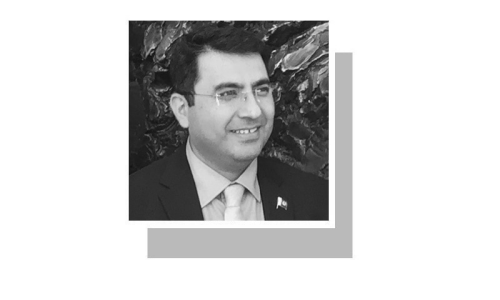Apart from the usual criticism over various tax measures, two key clauses of the Finance Bill 2021-22 have received censure from not only opposition senators but also members of the ruling party and their coalition partners for their “drastic, draconian and extraordinary” approach and ramifications.
At the outset of the Senate Standing Committee on Finance and Revenue’s meeting on the next year’s finance bill, senators highlighted the publication of advertisements in newspapers that told taxpayers to pay their taxes honestly or face jail time. They referred to a new section (203A) and another amendment (1A) in Section 56A of the Customs Ordinance.
The proposed insertion in Section 56A had already been introduced through an ordinance promulgated in February this year under which the Federal Board of Revenue (FBR) can share real-time information, videos, data, images, logs et cetera relating to sales tax with any other government agency, including the National Accountability Bureau (NAB) or any other provincial anti-corruption establishment.
Senators believe the proposed changes in tax laws will turn the FBR into a mini-NAB
Officials explained the original sales tax law did not allow it but had to be changed on the instructions of the prime minister as part of investigations into the sugar price scam. The members suspected that such information-sharing could be misused by hackers or unscrupulous elements and should have certain limitations and restrictions. The government has agreed to ensure proper safeguards and get back with an improved version.
The members said the country had to be run under the constitution and the rule of law. Nobody could be arrested over the suspicion of tax evasion or wilful concealment of income without the completion of investigations followed by a judicial process. They contended that even the murderers had the right to defence before they were proven guilty.
There was almost a consensus among the committee members that unless this sense of terror and mind set of arrest were changed, the issue of tax evasion would not end. People were staying away from the tax net because of such threats and hence there was a dire need to curtail the powers of tax officials instead of giving them draconian authority.
The proposed clause entailed that “An officer of Inland Revenue not below the rank of an assistant commissioner of Inland Revenue or any other officer of equal rank authorised by the board in this behalf who on the basis of material evidence has reason to believe that any person has committed offence of concealment of income or any offence warranting prosecution under this ordinance may cause arrest of such person” as was done under relevant provisions of the Code of Criminal Procedure, 1898.
The senators believed this clause was against the spirit of the budget speech of the finance minister and others about ending the harassment by FBR officials and withdrawing their powers to issue notices and replacing it with third-party audits. They termed the move was tantamount to creating a “mini-NAB” and was open to misuse.
While the law minister assured parliament that the proposed amendment would be changed, it turned out the federal cabinet had already opposed the clause during the course of discussions on the federal budget just before it was presented in the National Assembly by Finance Minister Shaukat Tarin. Mr Tarin later also agreed the wording of the clause was against the spirit of his instructions but insisted that an improved version would be retained as a necessary deterrence against tax evasion.
He said the powers would be withdrawn from assistant commissioners (Grade-19 officers) and given to a committee led by himself with other members being the special assistant to the prime minister on revenue and the FBR chairman. He said the FBR itself would not be able anymore to act against taxpayers until authorised after a third-party audit. Yet this would not be used on a widespread level but restricted to 20-25 high-profile evaders to make an example for others.
The proposed amendment also entailed that where any person has committed the offence of concealment of income or any offence warranting prosecution under the Sales Tax Ordinance, the chief commissioner with the prior approval of the board may, either before or after the institution of any proceedings for recovery of tax, compound the offence if such person pays the amount of tax due along with such default surcharge and penalty as is determined under the provisions of this ordinance.
Also, where the person suspected of the offence of concealment of income or any offence warranting prosecution under the ordinance is a company, every director or officer of that company whom the authorised officer has reason to believe is personally responsible for actions of the company contributing to the offence of concealment of income or any offence warranting prosecution under this ordinance will be liable to arrest, provided that such arrest will not absolve the company from the liabilities of payment of tax, default surcharge and penalty imposed.
Another insertion proposed that soon after the arrest of an accused of income concealment under 203A, the assistant commissioner will immediately intimate the arrest of that person to a special judge within 24 hours who may direct such officer to produce that person at such time and place and on such date as the judge considers expedient and such officer will act accordingly.
Published in Dawn, The Business and Finance Weekly, June 21st, 2021















































Dear visitor, the comments section is undergoing an overhaul and will return soon.